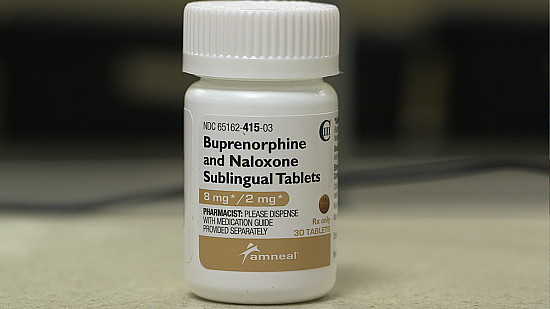Harvard Health Blog
When a loved one is addicted to opiates

We are in the midst of an unprecedented epidemic, with several million people currently addicted to opiates in the United States, including both prescription drugs and heroin. Much discussion has been devoted to the visible tragedy of overdoses, which are killing dozens of people every day. Less attention has been paid to a more subtle, but damaging and painful, component of this epidemic: how a person suffering from opiate addiction affects his or her family members.
The effects of substance use disorder on loved ones
Substance use disorders (SUDs) are brain diseases that can negatively affect a person's behavior and fundamentally alter one's personality. It is not uncommon for people suffering from SUDs to act in a way that is alienating and destructive to their friends and families. For example, a common scenario is theft of property or money to purchase drugs. Families can feel hurt and betrayed by this behavior, especially if they don't understand that addiction is a disease. Family members can feel lied to, cheated, manipulated, and at times even threatened. With any signs of progress, with each stay in rehab, they become hopeful, only to have their hopes dashed again and again.
What can you do if you have a loved one addicted to opiates? This question has no easy answers, but does have several distinct schools of thought.
The "tough love" approach
A common belief is that a "tough love" approach will help family members avoid enabling the addiction. The thinking is that a family member can make an addiction worse by removing or cushioning the natural consequences of the addicted person's actions, so that they do not have an incentive to recover. For example, if a person spends all his or her money on drugs, and you give them more money for food, you have enabled their addiction. Otherwise, presumably, they would go hungry, and would start to understand the connection between their drug use and their hunger.
In this example, the tough love approach suggests that the thieving offender be forced to "find their bottom," or become miserable enough to understand the inescapable need to seek treatment. This response would also serve the purposes of protecting the family's finances and property and setting up physical and psychological boundaries, so that the members of the family can move on with their lives.
Unfortunately, with our current opiate crisis, "finding your bottom" all too commonly can mean death from overdose, especially with our streets being flooded with fentanyl, a deadly opiate that people often mistakenly buy, looking for heroin.
Plain old love as an approach
Gradually, a more nurturing and supportive approach to substance users is supplanting the tough love approach. This is partly in response to the sheer number of overdose deaths. It is also due in part to the increasing awareness of addiction as a disease that needs to be met with empathy, rather than a moral failing that deserves scorn and punishment. Instead of tough love, people are simply using plain old love to try to coax their family member back into the fold, and hopefully encourage them to seek treatment. Each slip or relapse is met with support and patience, as families increasingly understand the chronic and relapsing nature of addiction. Many believe that this is a safer and more humane way to respond to addiction.
A tenet of 12-step ideology is that addiction is a "disease of isolation," with its hallmarks being secrecy and disconnection. Therefore it makes sense that human connection would be an important component of treating addiction, and that a strategy of loving engagement might be more effective than one that shuns the sufferer or blames the victim. Through engagement and connection, a lifeline to treatment can be offered.
And about the suffering of family and friends…
It is essential to pay attention to the well-being of the family members themselves during all of this, as having a loved one with a substance use disorder can be profoundly stressful and disruptive, even traumatic. Every situation is different, but certain general principles apply. Psychologically, it is critical to be as open with your social community as you feel comfortable being, and to rely on the support of others. Many people find getting involved in a recovery group such as Al-Anon or Nar-Anon to be invaluable. Sometimes suffering alone can be the worst type of suffering. Family therapists and addiction specialists may also be helpful.
On a practical level, one must protect one's finances, and you may need to change passwords or secure valuables if theft is an issue. If living with your addicted loved one is just too stressful, alternative living arrangements may be necessary. Some families may need to change their locks. Families must decide whether they truly wish to go deeply into debt to fund a second or third stint at rehab.
One of the most difficult situations that families can face is coping with a loved one who is actively abusing opiates. With our current epidemic, it is becoming distressingly common. This situation is always replete with guilt, shame, and stigma for everyone. A frequently used metaphor (borrowed from airline safety videos, yet commonly employed in recovery centers) is that it is critical that you put on your own oxygen mask before trying to help others do the same, so that you are able to remain functional in order to help. This fully pertains to addiction. We suffer alone, but we recover together.
Disclaimer:
As a service to our readers, Harvard Health Publishing provides access to our library of archived content. Please note the date of last review or update on all articles.
No content on this site, regardless of date, should ever be used as a substitute for direct medical advice from your doctor or other qualified clinician.
















